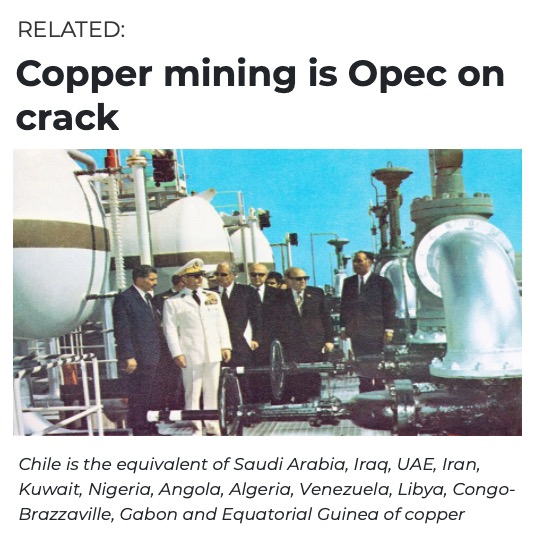
Environmental activists like Constanza San Juan have been peripheral figures at best in Chile’s emergence as the dominant supplier of copper over the past few decades. Now, she and others like her are rewriting the rules, with tens of billions of dollars in investments riding on the outcome.
Deliberations will begin in earnest early next year, with members likely to be emboldened by Sunday’s election of the most left-leaning president since Salvador Allende. Proposals range from setting time limits on concessions to banning mines altogether under some conditions. The copper industry is pushing hard to retain the indefinite concession model, which it says is critical for long-term planning that underpins investments.
There’s a lot at stake. Chile’s government lists a total of almost $70 billion in possible mining projects this decade. Some of that will depend on how the new constitution turns out and whether it’s ratified in a referendum. As such, the document will help determine how much of the world’s biggest copper and lithium reserves will be tapped in the coming years to meet rising global demand in the transition away from fossil fuels.
“Until this is clarified — the issue of legal security and any new rules — we’re not going to see large investments,” said Diego Hernandez, head of Chilean mining society Sonami.
Committee members
A quick look at the makeup of the committee — and that of the broader 155-person constitutional assembly — explains the industry’s fears. In a process born from street protests that erupted two years ago, about three quarters of the committee are left-wing or social and environmental activists of some kind. That means conservatives gunning for a continuation of investor-friendly rules are in a clear minority.
For example, there’s 26-year-old independent Juan Jose Martin, who co-founded a sustainability youth organization; Camila Zarate, 29, an environmental lawyer who advocates for water rights; and San Juan, who sees sustainable mining is a contradiction in terms and calls for a ban on all mines near water sources, including glaciers and salt flats that hold much of the world’s lithium reserves.
San Juan’s views were shaped by the aborted attempt by Barrick to develop a giant open pit at the top of her valley. Construction was halted in 2013 amid environmental breaches that led to fines and lawsuits. “Technology allows mining companies to go all the way up to the glaciers and we won’t allow that because that’s where 70% of the country’s water comes from,” she said.
Election results
Mining companies have more at risk from constitutional reform than from the presidential election, according to Hernandez. While companies probably would have fared better under conservative candidate Jose Antonio Kast than left-wing President-elect Gabriel Boric, an evenly split congress limits the likelihood of radical policies.
The copper industry, which accounted for more than half of Chile’s exports last year and 11% of GDP, is responding to mounting pressure to find cleaner ways to operate. Producers have also indicated a preparedness to pay more taxes for social spending, as well as adhere to stricter exploration rules. But the industry says sticking to the indefinite concession model is crucial for planning.
“No company estimates their cash flow looking four years ahead,” BTG Pactual analyst Cesar Perez-Novoa said. “Worst case scenario, it’s a 15-year horizon and best case, 30 to 50. The constitution is what’s important here, not the president.”
The industry is encouraged by the make-up of congress, not only because it’s set to moderate policy, but also because it suggests the electorate may not sign off on radical constitutional reform. Even activist San Juan, speaking before Sunday’s presidential election, indicated that the exuberance for change when the assembly was elected may have waned a little. Still, Boric’s landslide victory Sunday may help rekindle some of that momentum.
Hernandez, a former chief executive of Codelco and Antofagasta Plc., is also banking on people recognizing that mining will have to play a big role in keeping the economy going after the impact of pandemic stimulus peters out.
Still, major mining companies including Freeport-McMoRan Inc. and Lundin Mining Corp. have said they won’t be pulling the trigger on new investments in Chile until the political and regulatory environment becomes clearer.
(By James Attwood and Alvaro Ledgard)

No comments:
Post a Comment